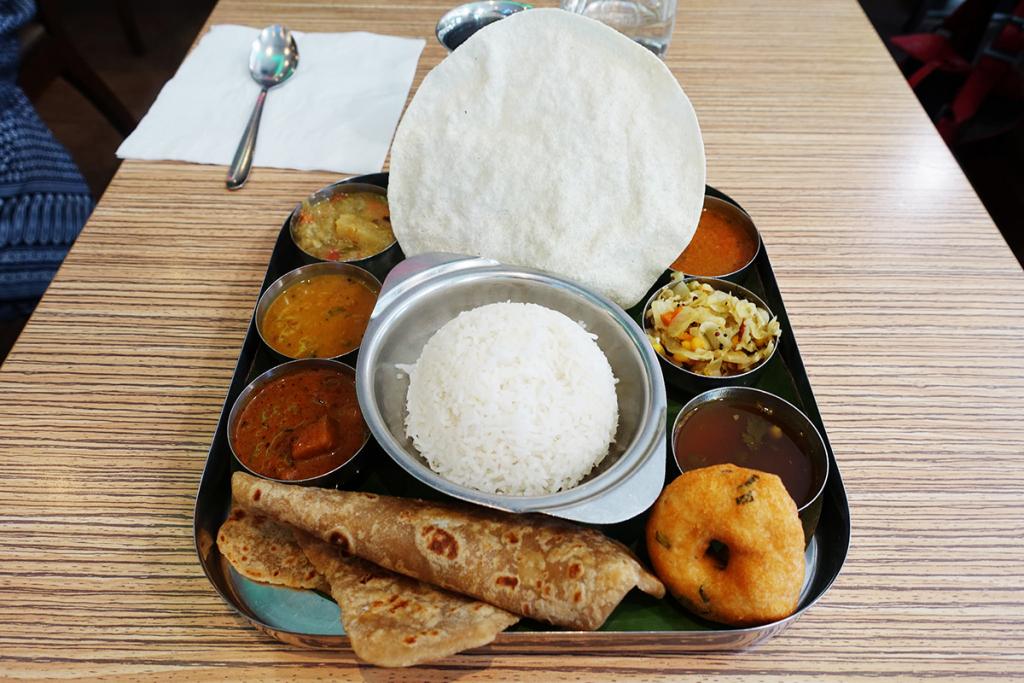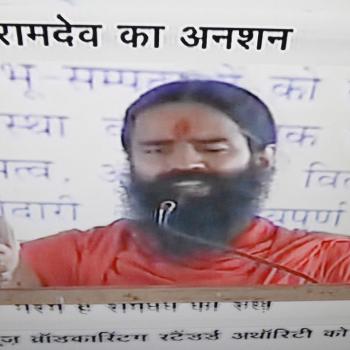
In the past week we passed an ominous way marker on our march towards a more dangerous, less hospitable climate: For the first time in millions of years atmospheric concentrations of carbon dioxide are more than 410 parts per million. This may seem an abstract thing in that you can’t see increasing CO2 levels with the naked eye, but its effects are clearly visible all around us and will only get worse.
The Hindu Declaration on Climate Change — a joint project of the Bhumi Project and Hindu American Foundation, on which I was the lead author — makes it clear that there is a strong spiritual and ethical case to be made to fight climate change with urgency.
Dharma exists for the welfare of all beings. Hence, that by which the welfare of all living beings is sustained, that for sure is dharma. — Mahabharata
The perennial question here is ‘What can I do?’
This has been said before but it bears repeating: Maintaining a bountiful planet with a stable climate requires both personal action and systemic change.
Fortunately it’s the same three big things that need to be addressed on both the personal and community/national level: how our electricity is produced, how we move ourselves and our products around, and what we eat.
Much has been written on the effects of burning fossil fuels for electricity and transport, and how renewable energy is being built with increasing speed and at a lower and lower cost (despite efforts by the current US government to prop up the fossil fuel industry).
This is important but I’ll leave it aside for the moment to focus on the third item on that list, which is where the Hindu tradition offers clear guidance.
The Hindu tradition is less dogmatic than the Jain tradition in espousing vegetarianism. However there are still many scriptural quotes supporting eschewing meat.
One of my favorites, because it’s so plain and direct, is from the Tamil saint Tiruvalluvar:
How can he practice compassion, who eats the flesh of an animal to fatten his own flesh? — Tirukural 251
Not all Hindus follow this advice. Most don’t in fact. Contrary to popular perception, only roughly one-third of Hindus are strict vegetarians. Nevertheless, vegetarian diet is much more integrated into society in India than anywhere else in the world. And considering that most nations barely top single digits in percentage of vegetarians, it’s easy to see why it feels like the majority of Hindus are vegetarian.
A vegetarian diet is hugely beneficial for the planet (a vegan one every more so)
Leave aside the health and animal welfare benefits of not killing animals for food. The effect on prevent climate change alone is massive.
Eating a vegetarian diet is two-thirds lower in carbon emissions than a standard American diet, heavy on meat. A vegan diet is lower still. If you just eat fish (no land animals) this is only slightly higher in carbon emissions than a vegetarian diet.
Beef is a huge climate problem
When it comes to meat eating, a newly released study in Environmental Research Letters really lays out the massive impact beef eating in particular has on carbon emissions. The researchers found that just 20 percent of Americans, those eating the most beef, are responsible for an astonishing 50 percent of all carbon emissions related to the food we eat.
The answer to ‘what sort of diet should I eat to help protect our climate?’ is clear: Vegetarian or (even better) vegan. At minimum beef absolutely needs to be eliminated from your plate.















